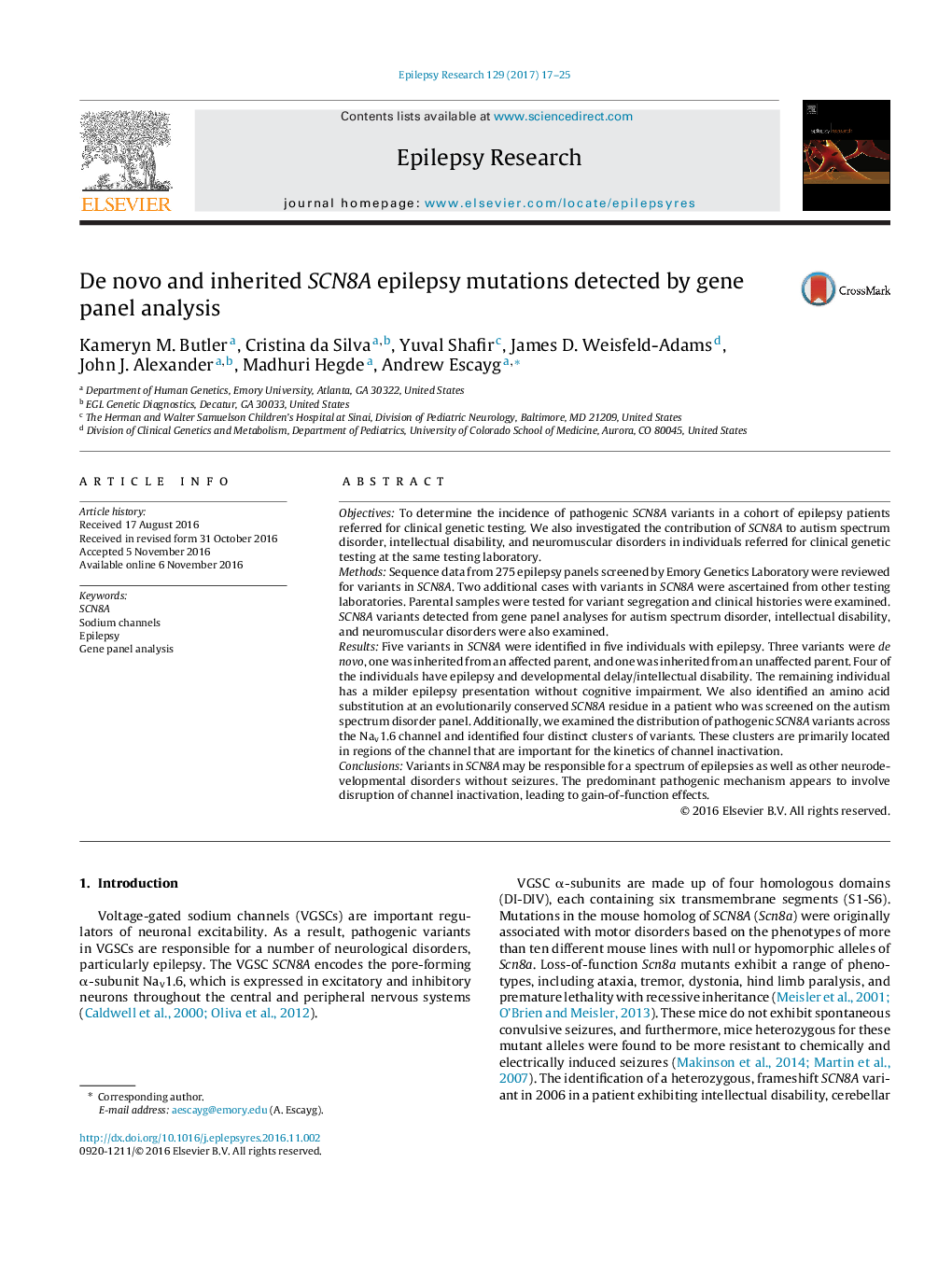| Article ID | Journal | Published Year | Pages | File Type |
|---|---|---|---|---|
| 5628767 | Epilepsy Research | 2017 | 9 Pages |
â¢Five SCN8A variants were identified in individuals with severe and mild epilepsy.â¢Variation in SCN8A may contribute to neurodevelopmental disorders without seizures.â¢Four distinct clusters of pathogenic variants were identified within the channel.â¢These clusters are located in regions of the channel important for inactivation.
ObjectivesTo determine the incidence of pathogenic SCN8A variants in a cohort of epilepsy patients referred for clinical genetic testing. We also investigated the contribution of SCN8A to autism spectrum disorder, intellectual disability, and neuromuscular disorders in individuals referred for clinical genetic testing at the same testing laboratory.MethodsSequence data from 275 epilepsy panels screened by Emory Genetics Laboratory were reviewed for variants in SCN8A. Two additional cases with variants in SCN8A were ascertained from other testing laboratories. Parental samples were tested for variant segregation and clinical histories were examined. SCN8A variants detected from gene panel analyses for autism spectrum disorder, intellectual disability, and neuromuscular disorders were also examined.ResultsFive variants in SCN8A were identified in five individuals with epilepsy. Three variants were de novo, one was inherited from an affected parent, and one was inherited from an unaffected parent. Four of the individuals have epilepsy and developmental delay/intellectual disability. The remaining individual has a milder epilepsy presentation without cognitive impairment. We also identified an amino acid substitution at an evolutionarily conserved SCN8A residue in a patient who was screened on the autism spectrum disorder panel. Additionally, we examined the distribution of pathogenic SCN8A variants across the Nav1.6 channel and identified four distinct clusters of variants. These clusters are primarily located in regions of the channel that are important for the kinetics of channel inactivation.ConclusionsVariants in SCN8A may be responsible for a spectrum of epilepsies as well as other neurodevelopmental disorders without seizures. The predominant pathogenic mechanism appears to involve disruption of channel inactivation, leading to gain-of-function effects.
